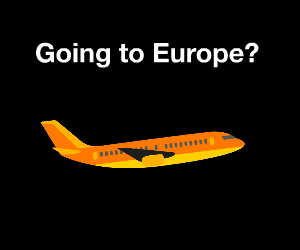Europe is home to some of the world’s most advanced and innovative telecommunications companies, with several leading providers of mobile, fixed-line, broadband, and other related services. However, there are also disparities in the level of development and market penetration across the region. Discover Europe telecoms by each country below. europe telecoms
Europe Telecoms by countries
Choosing the right telecom operator in the EU can be confusing. Alertify makes it easy! We help you find the best deals for free (individuals) or a small fee (businesses) in all EU countries. If you are travelling outside EU countries, we can help you reduce roaming expenses. Contact Alertify today: info@alertify.eu!
Some of the most developed telecom markets in Europe include the United Kingdom, France, Germany, Spain, and Italy, where the top telecom providers include Vodafone, Orange, Deutsche Telekom, Telefonica, and Telecom Italia, respectively. These companies have invested heavily in infrastructure and technology, enabling them to offer a wide range of services and compete effectively in their respective markets.
On the other hand, some of the less developed telecom markets in Europe are found in Eastern Europe and the Balkans, where infrastructure and technological investments have been more limited. Countries like Romania, Bulgaria, and Serbia have lower levels of internet and mobile penetration compared to their Western European counterparts.
There are several telecom groups that have a significant presence across multiple countries in Europe, including Vodafone, Orange, Deutsche Telekom, Telefonica, and BT. These companies have expanded their operations through acquisitions and partnerships, allowing them to offer their services to customers in multiple countries and regions.
In terms of services, mobile and broadband internet are among the most widely used in Europe, with many consumers using these services for both personal and business purposes. Other popular services include fixed-line telephone and television, as well as emerging technologies such as 5G, cloud computing, and the Internet of Things (IoT).
Growing focus on sustainability
One of the most significant shifts in the European telecom market is the growing demand for high-speed internet and mobile connectivity, as consumers increasingly rely on these services for work, education, and entertainment. The rollout of 5G technology is expected to accelerate this trend, enabling faster and more reliable internet and mobile connections.
There is also a growing focus on sustainability and reducing the environmental impact of telecom infrastructure, with many companies investing in renewable energy sources and other initiatives to reduce their carbon footprint.
When comparing the European telecom market with those in Asia and the US, it is important to note that each region has its unique characteristics and challenges. In Asia, for example, the mobile market is much larger than the fixed-line market, and there is a greater emphasis on low-cost devices and services. In the US, competition among telecom providers is more intense, and there is a greater focus on premium services such as high-speed internet and high-definition television.
What’s in…
All 28 EU Member states +
- Iceland
- Liechtenstein
- Madeira
- Martinique
- Monaco (not the EU but is covered by France)
- Mount Athos
- Mayotte
- Norway
- Reunion
- Saint-Barthélemy
- Saint Martin
- Vatican City (not the EU but is covered by Italy)
What’s out…
- Akrotiri and Dhekelia
- Andorra (it has the Euro but is not the EU)
- Faroe Islands
- Channel Islands (Bailiwick of Jersey and Bailiwick of Guernsey)
- Isle of Man
- Northern Cyprus
- San Marino
- Switzerland
Alertify is supported by its audience. When you purchase through links on our site, we may earn an affiliate commission









































